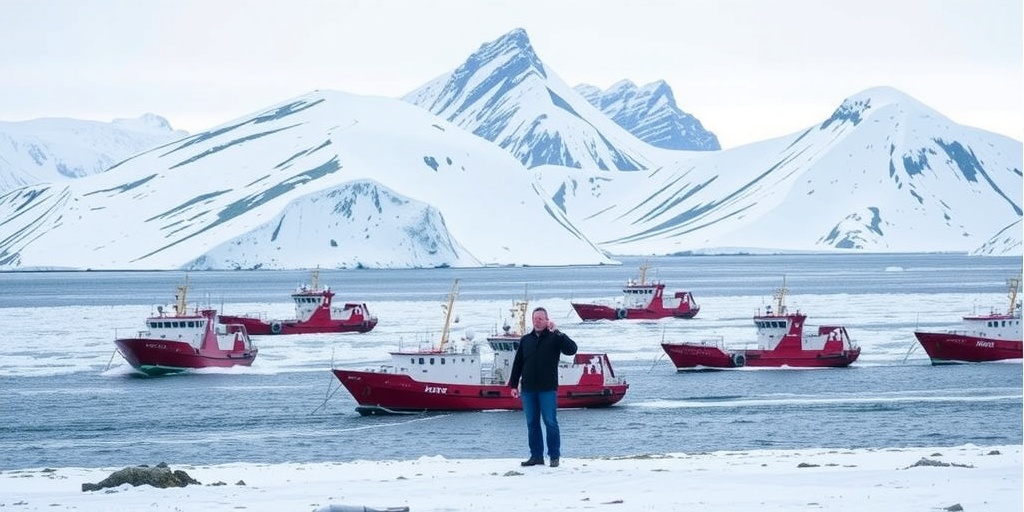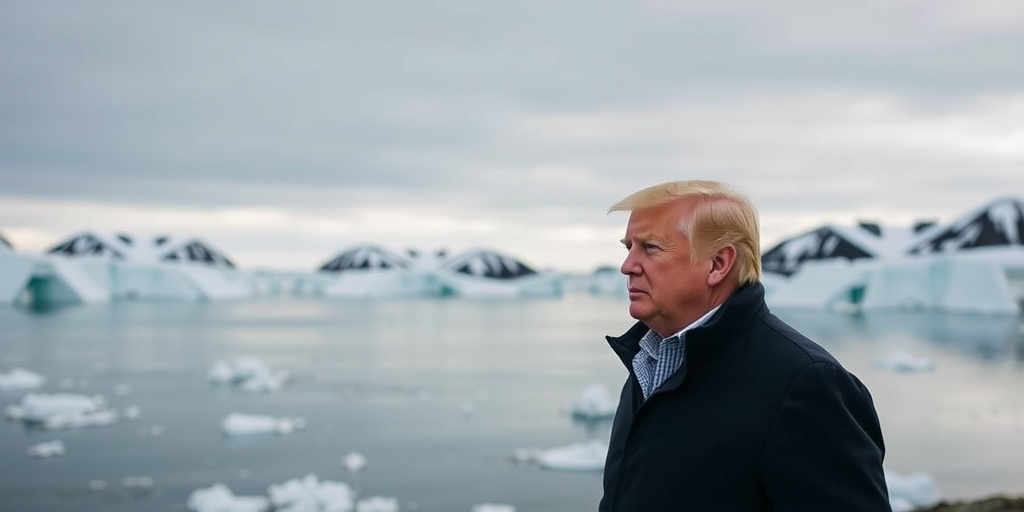Now Reading: Greenland to Trump: Not for Sale, But Open to Business Talks
-
01
Greenland to Trump: Not for Sale, But Open to Business Talks
Greenland to Trump: Not for Sale, But Open to Business Talks

Greenland Engages in Dialogue Amidst Trump’s Territorial Remarks
In a fresh diplomatic development arising from President-elect Donald J. Trump’s controversial speculation regarding the future of Greenland, the Prime Minister of Greenland, Múte Egede, expressed a desire for closer collaboration with the United States. This statement marked a response to Trump’s recent musings about potentially acquiring the vast Arctic territory, a proposition that has reverberated through international media and sparked significant discourse.
During a news conference held in Nuuk, the capital of Greenland, Prime Minister Egede articulated, "The reality is we are going to work with the U.S. — yesterday, today, and tomorrow." While welcoming the prospect of a partnership with the U.S. concerning defense and natural resources, he articulated a pivotal stance: the people of Greenland are not interested in becoming Americans. "We have to be very smart on how we act," Egede remarked, noting the rising power struggles between global superpowers that are increasingly encroaching upon Greenland’s sovereignty.
In the wake of Trump’s comments, the territory’s leadership and its citizens have expressed a mixture of shock and newfound attention, particularly following a swift visit by Trump’s eldest son, Donald Trump Jr., who arrived on the island on the same day as his father’s remarks. The younger Trump embarked on a brief sightseeing excursion, claiming his visit was purely for private business, which has drawn heightened media coverage and global scrutiny towards Greenland.
The discussion surrounding Greenland is underscored by its strategic importance, a territory that has long been associated with icebergs and polar bears but is now becoming a focal point for international interest due to climate change and the potential exploitation of its mineral wealth. With the Arctic ice melting, the region’s shipping routes and resource pools are becoming more accessible, awakening the interests of several world powers, including the United States, Russia, China, and European nations.
Greenland, historically a colony and now a self-governing territory of Denmark, has maintained strong ties with its motherland while navigating the complexities of seeking greater autonomy. While Denmark continues to oversee foreign affairs and defense, the local government is increasingly asserting its desire for independence amid growing international investment interest in the region. However, the dependency on Danish subsidies for economic support complicates the push for full autonomy.
As the temperature in Nuuk hovered around a frigid zero degrees Fahrenheit, many residents gathered to hear Prime Minister Egede’s response to the unfolding situation. Local sentiment appears to align with the Prime Minister’s message of caution and collaborative ambition. While there is a palpable reluctance among the Greenlandic populace to be absorbed by the United States, there remains a strong appetite for enhanced trade and cooperation.
Community members echoed this sentiment, as evident from the comments of Nielseeraq Berthelsen, a fisherman selling traditional Greenlandic delicacies at a seafood market. He remarked, “What we really need is more cooperation and trade.” Berthelsen recounted an anecdote about unexpectedly encountering Donald Trump Jr. at a local mall, emphasizing the enthusiasm he perceived during their brief handshake.
Egede did not firmly declare a timeline for independence but indicated that various political factions within Greenland have differing perspectives about the nation’s future. He noted, “Whatever happens, there’s no turning back,” reflecting a shared determination among citizens for self-determination that resonates amidst the unanticipated geopolitical attention.
The comments from incoming Vice President JD Vance also elicited a sense of cautious optimism from Egede. While Vance did not completely dismiss the idea of military action, he emphasized the importance of dialogue by stating, “We don’t have to use military force,” highlighting Greenland’s rich natural resources and potential for beneficial agreements.
The role of the United States in Greenland’s history is significant, with military bases established during World War II and previous attempts to purchase the territory from Denmark. Currently, the U.S. operates the Pituffik Space Base, a critical site specializing in missile defense, further illustrating the lingering strategic interest in the region.
As conversations around Greenland’s future proliferate, the local populace remains attuned to the global discourse, seeking to forge a path that balances autonomy and beneficial partnerships on the world stage. While Greenland may remain a relatively small territory with a population of about 56,000, the implications of its strategic position are becoming more pronounced, prompting local voices to reflect a blend of cautious hope and practical realism in navigating their future.
Stay Informed With the Latest & Most Important News
Previous Post
Next Post
-
 01New technology breakthrough has everyone talking right now
01New technology breakthrough has everyone talking right now -
 02Unbelievable life hack everyone needs to try today
02Unbelievable life hack everyone needs to try today -
 03Fascinating discovery found buried deep beneath the ocean
03Fascinating discovery found buried deep beneath the ocean -
 04Man invents genius device that solves everyday problems
04Man invents genius device that solves everyday problems -
 05Shocking discovery that changes what we know forever
05Shocking discovery that changes what we know forever -
 06Internet goes wild over celebrity’s unexpected fashion choice
06Internet goes wild over celebrity’s unexpected fashion choice -
 07Rare animal sighting stuns scientists and wildlife lovers
07Rare animal sighting stuns scientists and wildlife lovers





















